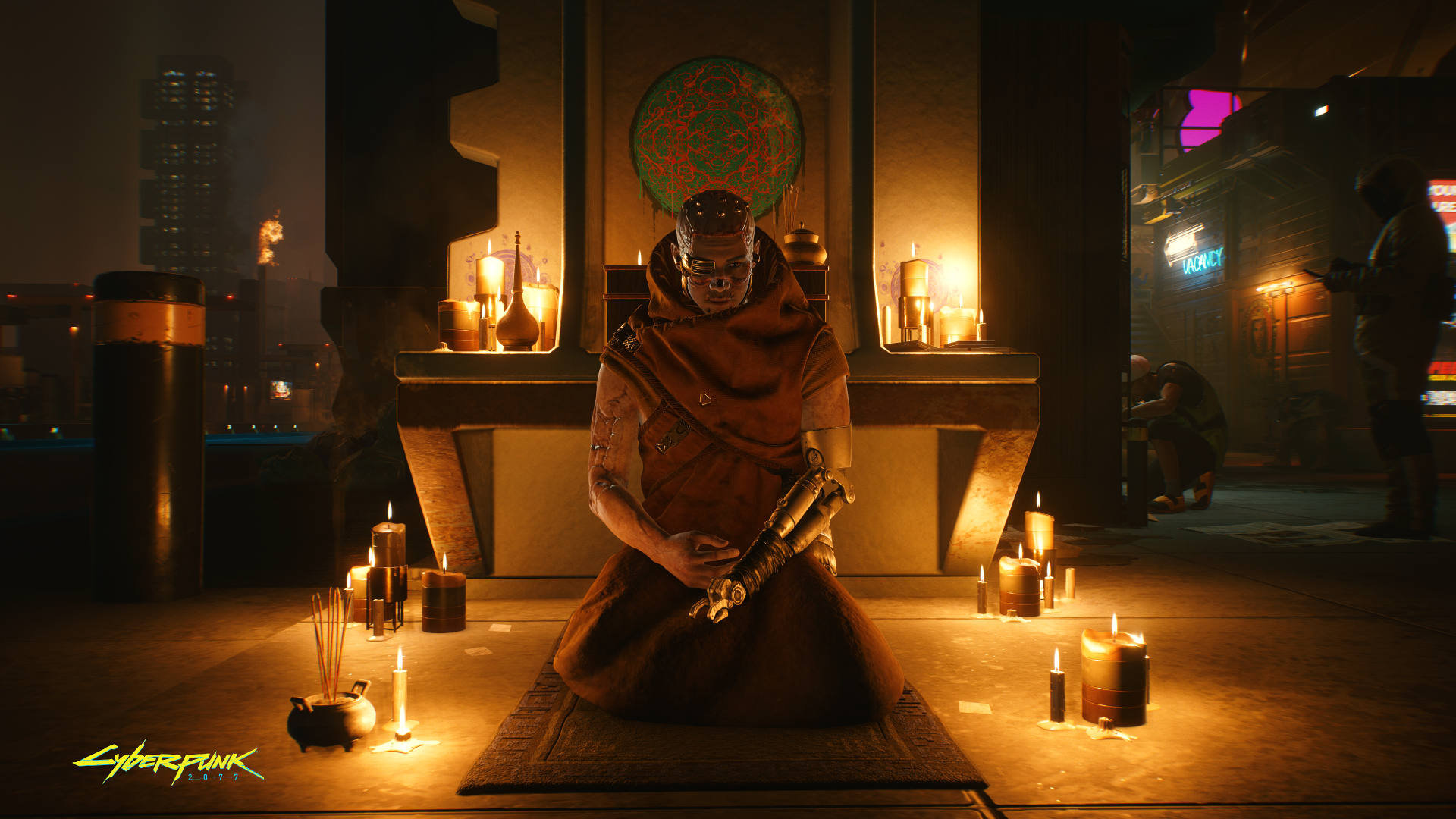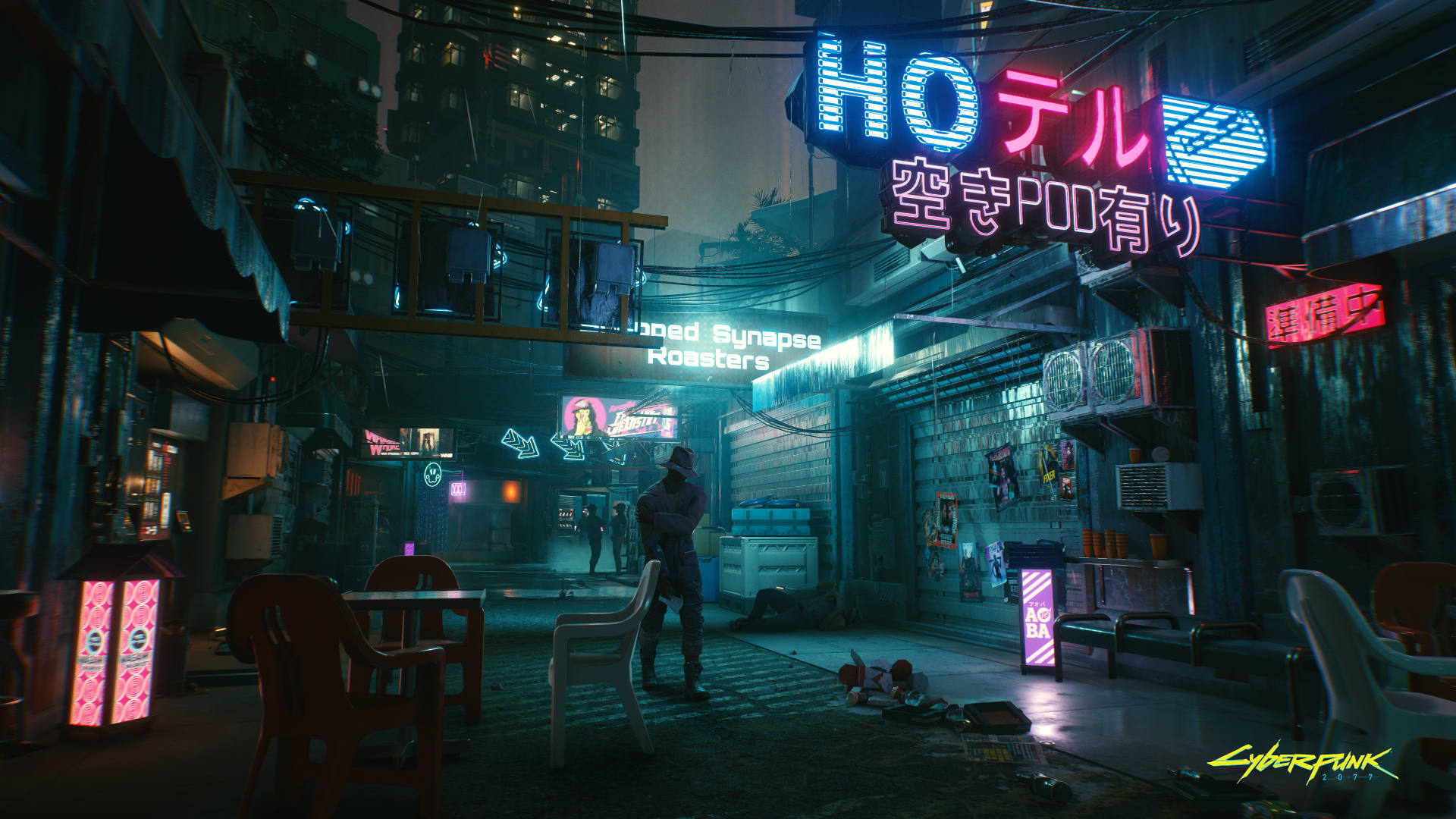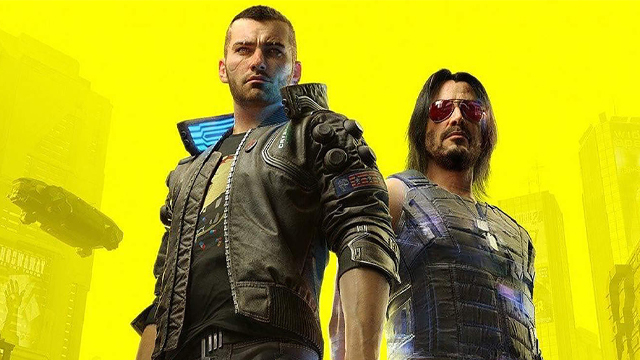The first Cyberpunk 2077 reviews are out and CD Projekt Red’s RPG has been expectedly well-received, though not universally acclaimed. As a result, a selection of gamers — who have yet to play the game but have somehow formed definitive opinions on it — are angry.
After the reviews went live, publications that gave it a “low” score (that’s anything below a 9 or 10, so not actually low at all) started trending on Twitter. The limited review copies sent out to press ensured that GameRevolution couldn’t join in on the exciting Discourse™, though rest assured we’ve faced our own numerous backlashes over the years, most recently with our review of Assassins’ Creed Valhalla.
The response to the Cyberpunk 2077 reviews once again highlights a fundamental misunderstanding of how the process works. So, as it’s the season of giving, I’m going to give everyone who still doesn’t “get” reviews a refresher on how opinions work.
“Why did Cyberpunk 2077 get a lower score from Website A than Website B?”

The answer to this is an incredibly obvious one, but it’s a question most publications face with each review they post. Whenever a game has received mostly positive reviews, the reviews that don’t offer such high praise are brought into question.
Reviews are scored differently because different people are reviewing them. For reasons beyond anyone’s control, this has to be explained over and over again despite it being incredibly obvious. How different critics are expected to reach the same conclusions en masse is anyone’s guess, but whenever reviews are published, readers will jump into the comments section of any outliers to point to the game’s Metascore as evidence of a mistake.
When we publish a review, it’s posted to Metacritic where it either positively or negatively affects the game’s Metascore. It isn’t our job to worry about this in any capacity, but for some reason, certain gamers have made it theirs. No one truly understands why this happens. CD Projekt Red isn’t driving up to anyone’s house to deliver a gift basket in honor of their tireless dedication to a game they’ve yet to play. Regardless of whether or not GameSpot has awarded Cyberpunk 2077 a 7 or a 10, you’re still going to be able to play it.
“Personal opinions shouldn’t impact a review score!”

No.
No, no, no, no, no, no.
If this is your main takeaway after reading a review you disagree with, then the reality is that you don’t actually want to read a review. You want to read the back of a game box. If you believe that a review should solely consist of a regurgitation of a game’s features, that’s marketing. What you actually want is to be marketed to. You want to watch a trailer that will uncritically show you a game that you’re already going to play. You want to sit and clap and not be asked to think.
This belief routinely pops up when a game includes “politics.” In gaming, “politics” can be anything from female protagonists to LGBTQ+ representation. Politics usually means anything other than actual politics — there was more concern over Black Ops Cold War allowing players to be a non-binary character than Ronald Reagan popping up to deliver pro-war propaganda.
As games will continue to address real-world issues, reviews will inevitably discuss whether or not they are successful in doing so. The sole function of a review isn’t just to tell you whether to buy a game or not, but to offer the reviewer’s perspective on a game in a piece of writing designed to inform, enlighten, and/or entertain you. By removing the “opinion” part of this process, you achieve none of the above.
“But reviews represent a website’s opinion, not an individual’s!”

And how do you suggest we should reflect the opinions of an entire staff in a single review, hm? Let’s look at the logistics here. In order for a review to seriously represent the opinions of an entire team of editors and writers, each member of that team will have needed to have played it. They will also have needed to have played it enough to offer a final verdict on it, thus meaning that everything else in their work schedule will need to be altered or canceled in order to do so.
Are you telling me that before publishing my review of the 2019 Nintendo Switch game Little Friends: Dogs and Cats, each member of the GameRevolution staff also needed to offer their take on it? If not, then are we only employing this method for big-budget releases? Because that seems pretty biased to me!
While it’s true that a review is representative of the outlet that published it, this doesn’t mean that it’s reflective of that outlet’s collective opinion. It just means that the writer penning the review was entrusted by the site to handle it.
“But this site gave a game I disliked a better score!”

“How could you give Cyberpunk 2077 an 8 when you gave Animal Crossing: New Horizons a 9!”
Whenever this complaint is made, it usually features two reviews with two completely different authors lined up side-by-side. Those who fire out this criticism seem to believe that reviewers belong to some sort of hive mind, seemingly confusing game critics with the fucking Borg.
It shouldn’t be difficult to comprehend that two different writers will have two different opinions when it comes to two different games. The reaction to our Assassin’s Creed Valhalla review mutated to the point where readers started sending through GameRevolution’s scores for old Assassin’s Creed games as a “gotcha” moment, despite literally zero members of our current team having worked at the site when those games were released.
But in the rare instance when this complaint will be made about reviews written by the same author, the answer to this is — yeah? That’s going to happen? It is our job to play a whole bunch of games, so every now and again we’re going to publish reviews you don’t agree with. We might even publish two reviews you don’t agree with. In fact, given the sheer number of reviews published by each site each year, it would be hugely surprising if you agreed with the majority of the reviews published by any given outlet.
“So where do I take my misplaced anger about video game reviews?”
Literally anywhere else. If you’re the sort of person who gets angry about reviews of games you haven’t played yet, just consider doing anything — anything — else with your time. Take up crochet, get into Bitcoin, start a book club. We just implore you to consider the bafflingly monumental waste of time that is being mad online about a critic’s opinion.










